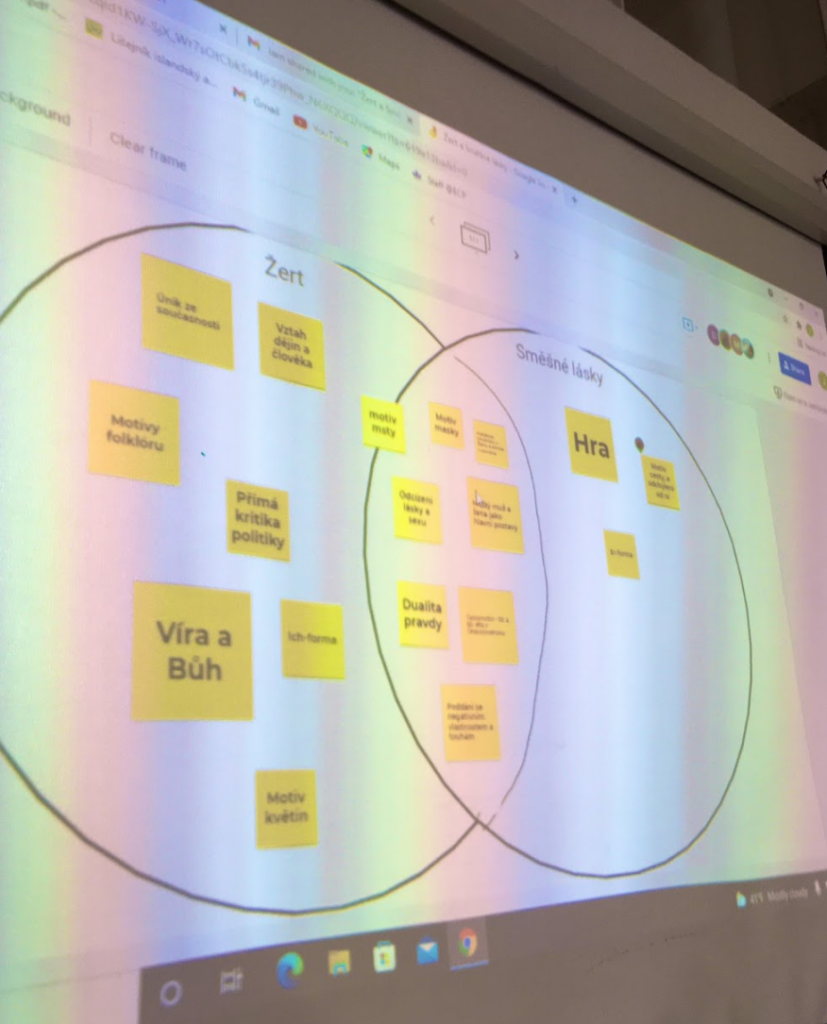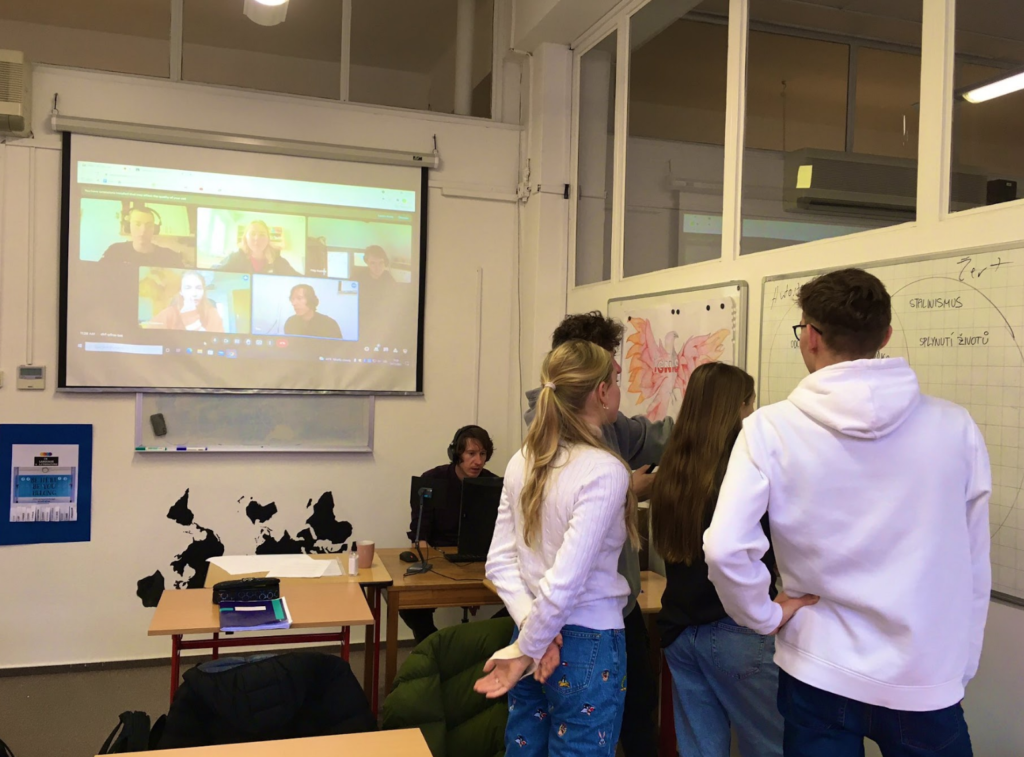Step into classrooms at The English College in Prague and you’ll see students comparing Kundera’s literary works or discussing the electromagnetic spectrum with faces and voices being projected from electronic devices. These students are actually connected with their peers who are shielding or quarantining at home.
As of November 22 this year, our school’s instructional approach is a hybrid model; teachers are delivering lessons to students located in their classrooms and online at the same time.
The Czech government has committed to keeping schools open in this wave of the pandemic, but thousands of young people across the country are sitting at home in self-isolation each day. Thus, although not required by any public authority, The ECP has proactively implemented a hybrid learning programme that students and parents can opt into until the Winter break begins, whether they are required to quarantine or not. This initiative has helped us calmly manage a turbulent time and continue to provide high-quality learning experiences for our students.
Best practice
Our hybrid system is working thanks to our teachers, who are skilled at using educational technology, and to the close monitoring of engagement and progress. We aim to be creative in adapting lessons and activities; at our Nov. 29 Teacher Training Day, colleagues shared best practice such as using a visualiser camera as an e-whiteboard for modeling Maths problems, or having a student who is physically in a lesson act as a “roving microphone” so those who are joining the class via Google Meet can engage in large-group History discussion.
Our continued use of Google Suite for Education in particular has allowed both three- and two-dimensional students to participate in synchronous learning. For example, students in an English class can peer-edit essays through shared Google Docs. Alternatively, Chemistry students can work collaboratively on evaluating trend graphs with a Google Jamboard.
It should be noted that we feel in-person learning is still the best option for students. Our lessons do not cater fully to online students like they did during distance learning. We want students to be in school as much as possible. However, this model exists as a mechanism to support all of our students and ensure learning is uninterrupted.
Of the utmost importance to us are:
- Maintaining student-teacher relationships
- Sustaining instructional rigour and engagement
- Clear structures and expectations for students and parents
- A manageable workload for our teachers
- Straightforward, intelligent and user-friendly learning technology
Emily Rankin, Deputy Head Upper School/Teaching & Learning

